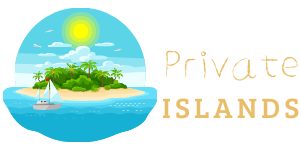Private Island Living
An innate desire to escape the daily grind in an idyllic, secluded setting is what draws many home seekers to private islands. This dream has permeated high culture (Shakespeare’s The Tempest and the reality TV series Temptation Island) and low (the search for the perfect beachside lot is a constant on real estate websites). But there are a few things that might deter an otherwise dispassionate home seeker: Private islands are frightfully expensive, require constant upkeep and – perhaps most importantly – lack basic commodities like fresh food, medical supplies and household products.
Despite these drawbacks, the burgeoning number of private islands on the market is attracting a wave of new buyers. According to a study published by the Global Property Guide, the number of islands on the market has more than tripled over the last decade. And despite the coronavirus pandemic that’s temporarily halted leisure travel, brokers say prospective island owners are exploring their options with renewed vigor.
In the past, a typical private island would have required extensive infrastructure to support residents, such as solar arrays for electricity and reservoirs for water. Now, it is possible to find a ready-made tourist destination with all these basics, and for less than it costs to buy a large city apartment.
But a secluded private island offers more than just a vacation retreat, says Barry White, who bought Long Point Island in Harpswell, Maine, in 2000. He and his wife Ann scoured the New England coastline for years in search of their dream waterfront property before discovering the pristine, secluded island off the coast of Maine. It surpassed all their expectations. “When we came here, there was a sense of magic,” says White. “There was a feeling that we weren’t just visiting – we were coming home.”
One of the allures of owning a private island is its ability to be a blank canvas upon which to build a grand vision. “When you’re on an island, you have the opportunity to design your life,” says Vladi, who runs private-island brokerage Vladi Private Islands. “You have 360-degree views that you wouldn’t get on mainland waterfront.”
Purchasing a private island can be as easy or as complex as buying a house, depending on how prepared you are for the task at hand. A good starting point is to determine your budget, as well as the region where you want the island to be located. It’s also helpful to know which country’s jurisdiction the island falls under, because that might affect tax laws.
The most important thing to consider is access to fast, qualified urgent medical care. Davis points out that even if an island has a doctor, the trip to the mainland for treatment could prove dangerous for someone who’s suffering a heart attack or other medical emergency. That’s why it’s essential to research the medical facilities in the area, he adds. This can be done by searching online for the nearest hospital or medical center to the island.
